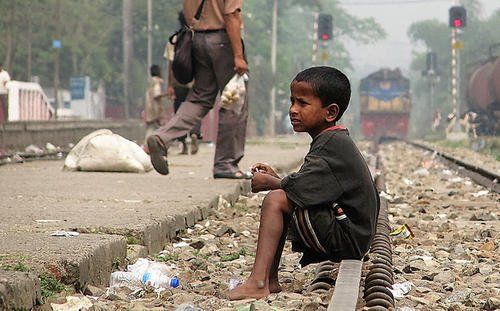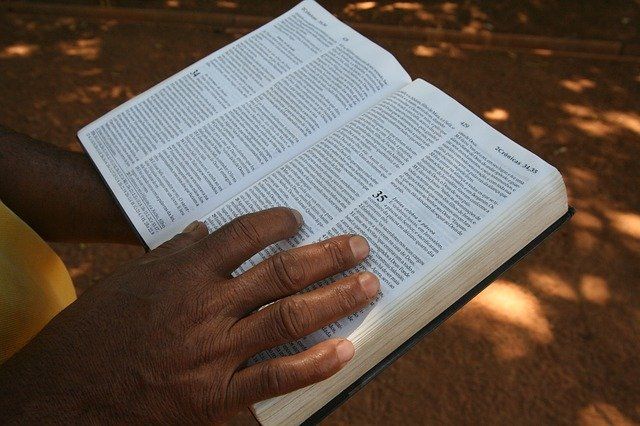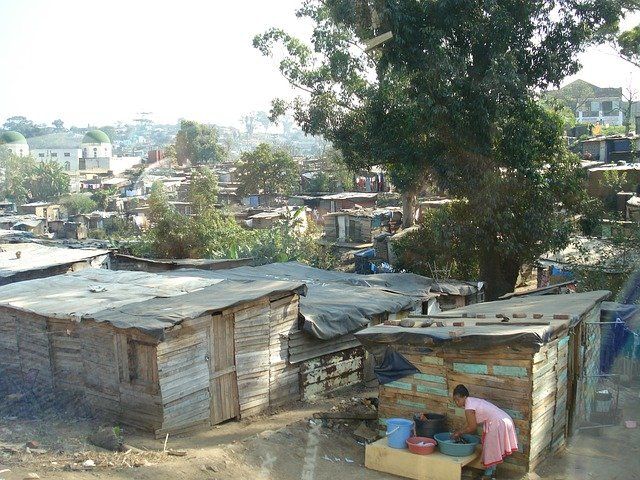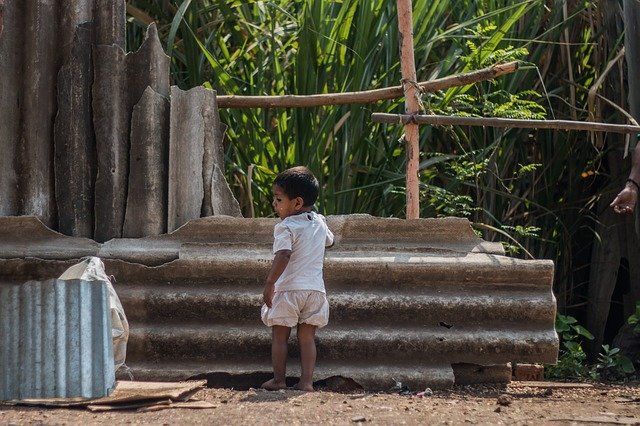
A large proportion of this world’s population is, by modern standards, impoverished. Not only do such people live on the edge of starvation; they are uneducated and have no meaningful contact with the world at large.
They are on nobody’s list for anything. If they are in trouble, few are interested. If they are wronged, they rarely have recourse to justice.
You meet them in the vast slums that blight the cities of the developing world. Some just live on the streets — even on rubbish heaps!
They are also found in rural areas where peasant farmers struggle to feed their families. There are millions of them. Certainly in most countries in Africa they are hopelessly neglected.
Imprisoned
Few resources are available to lift their status. Even where charitable organisations make a real effort, the people themselves are often locked into a pattern of behaviour and attitude that imprisons them in their sad existence.

It is not unusual for folk to fall sick and not want to go on living. What is life to them? What prospects brighten their horizons? I find this one of the more depressing aspects of life in Africa.
How should I, as a follower of the Lord Jesus Christ, react to this situation?
I must pray that ‘the Lord of the harvest’ will send forth labourers into this huge mission field. The great need is for missionaries to labour for souls among such people.
The work is, however, hard. Let me mention just some of the difficulties as I see them.
Difficulties
Firstly, many of these people have already been exposed to some form of religion. The devil has already been there, confusing them and establishing unbiblical patterns of religious thought and practice.
Roman Catholics labour extensively among the world’s poor. But a much greater problem stems from the deep penetration of charismatic teaching, aspects of which seem designed to grip the minds of the poor and uneducated.
Emotional highs relieve the awful monotony of life. The promise of healing is highly attractive to people who cannot afford medical care. ‘Prosperity’ teaching rivets the minds of the destitute.

The whole doctrinal base of the movement is comfortable to those who are superstitious and fearful of the demonic world. In the slums of the great cities of Africa, you will find enormous charismatic gatherings. Yet the people remain steeped in their traditional and pagan beliefs.
The way people think
A second difficulty is that the people may only speak a vernacular language. Such languages are not difficult to learn, but they are often poor vehicles for conveying spiritual and abstract truths.
I have been dismayed by the way some Bible translators corrupt the Word of God to express in a vernacular language what they perceived to be the meaning of a passage!
Anyone who is called to this work must understand the way people think, and be absolutely committed to communicating gospel truth faithfully.
Thirdly, the living conditions are terrible. Organisations labour to improve water and sanitation, but progress is slow. People who live clean and wholesome lives in their villages, often abandon themselves to their environment when they are drawn to the cities and settle in the slums.
Millions live in dirty, overcrowded, vermin-ridden homes, which are unbearably hot most of the year and probably very wet during the rains!

Old superstitions
Crime and immorality are rife in these areas. Death is always near, not least because of HIV/AIDS.
Social tensions explode into violent behaviour. People view missionaries as a source of finance. They seem to accept what the preacher says, but do so in the hope of receiving material help.
They cling to their old superstitions and creep away to the witchdoctor in times of special need.
The other side of the problem lies with us, in our churches — even our African churches. We love the comforts of our world, its pleasures and inducements, much more than we realise.
How can we leave it all behind and commit ourselves to a life of gospel work among the impoverished millions?
Street children
I have only been a bystander. We have only paid occasional visits to the slums of Nairobi or Lusaka. But I have wondered how I would cope if the Lord called me to labour in such areas!

Yet the Lord does have his servants even here. Trinity Baptist Church, Nairobi, is engaged in gospel work in the Kijiji slums on the east of the city.
We in Lusaka Baptist Church have a team working with street children, and our sister churches in Lusaka have church-planting projects on the so-called compounds.
The indigenous churches are reaching out to the poor of their community, but perhaps the Lord will yet call some from British churches to labour in these difficult fields.
There may be many of Christ’s elect still to be gathered from among the poor, the hopeless and the neglected.
For ‘God has chosen … the base things of the world and the things which are despised … and the things which are not, that no flesh should glory in his presence’ (1 Corinthians 1:27-29).





